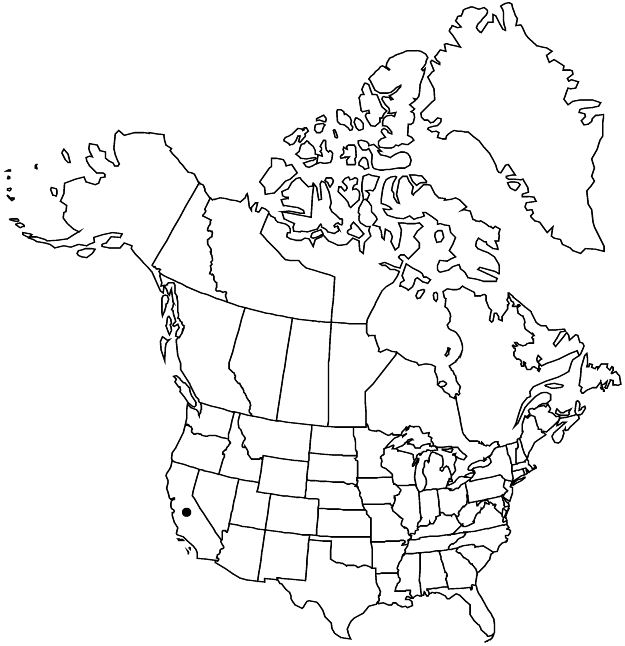Neviusia cliftonii
Novon 2: 286, fig. 1. 1992.
Leaves: petiole 4–10 mm; blade ovate to cordate, 2–9 × 1.5–7 cm, base obtuse to truncate, margins shallowly lobed and coarsely serrate, apex acuminate to acute, surfaces strigose. Pedicels 1–3 cm. Flowers: sepals obovate, 3.5–6 × 2.5–4 mm; petals usually 0, rarely 1–2; stamens 50+; carpels 3–6, styles 3 mm.
Phenology: Flowering late spring; fruiting late spring–early summer.
Habitat: Limestone substrates, shaded canyons along streams
Elevation: 300–500 m
Discussion
Of conservation concern.
Neviusia cliftonii, known only from the Lake Shasta region in northern California, has been recommended for federal listing under the Endangered Species Act. The discovery of fossil leaves of the genus in British Columbia (S. M. Moore et al. 2002) substantiates the hypothesis that the disjunct populations are relicts from a former more widespread distribution (J. R. Shevock et al. 1992). Members of the California Native Plant Society currently are cultivating N. cliftonii (B. Ertter and J. R. Shevock 1993).
Selected References
None.
